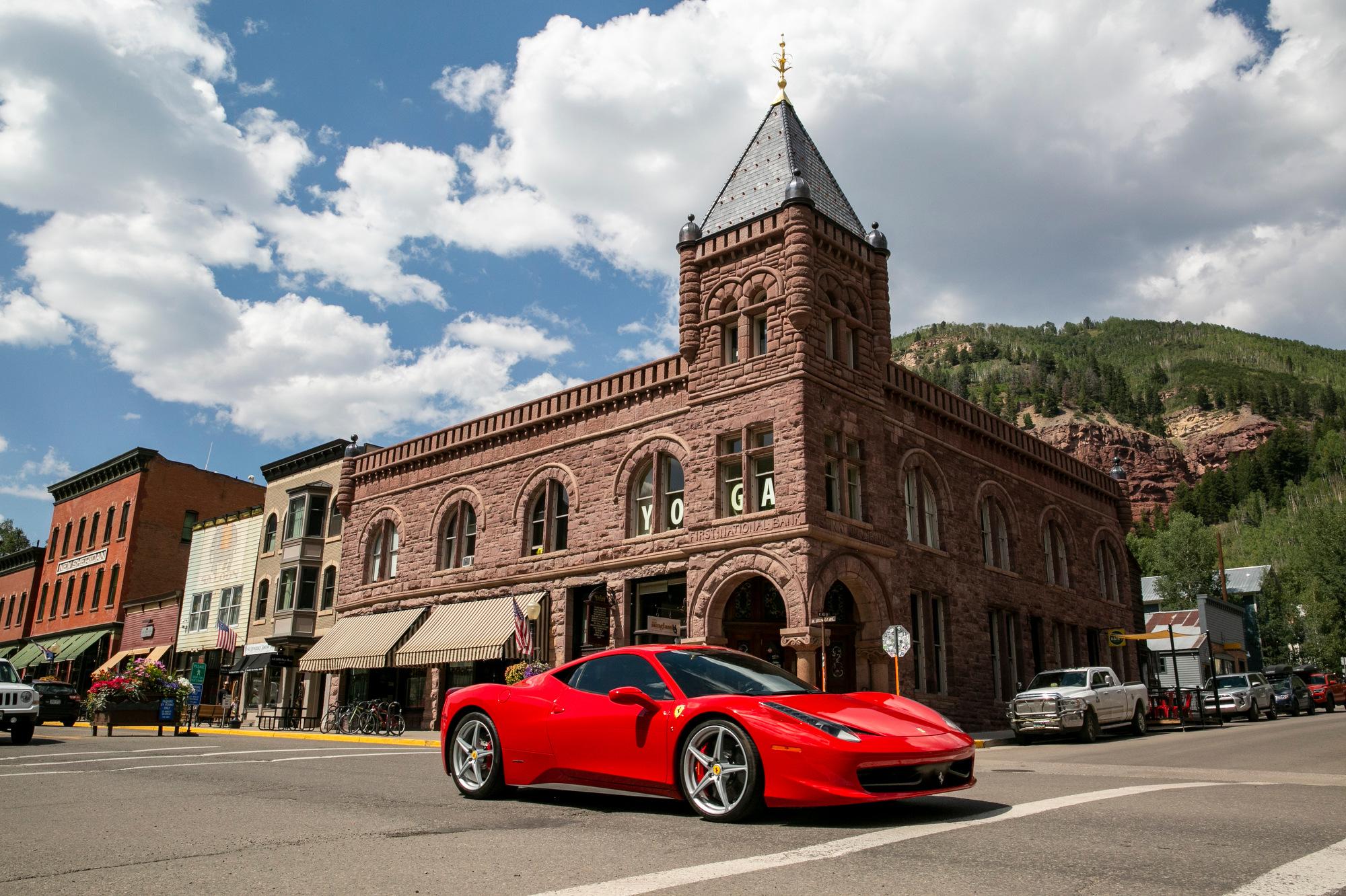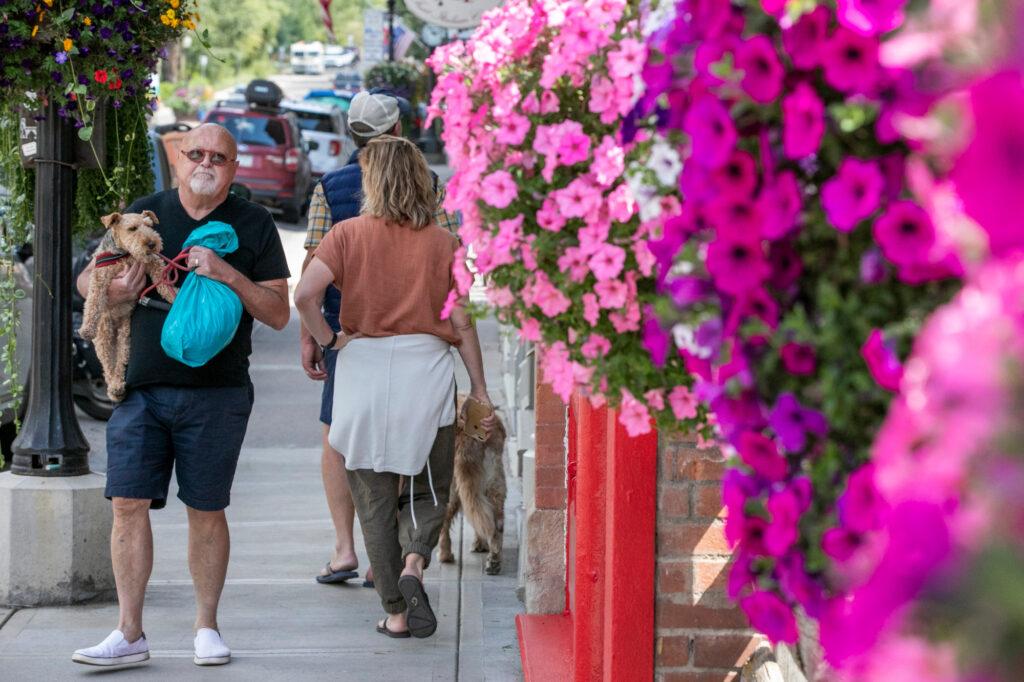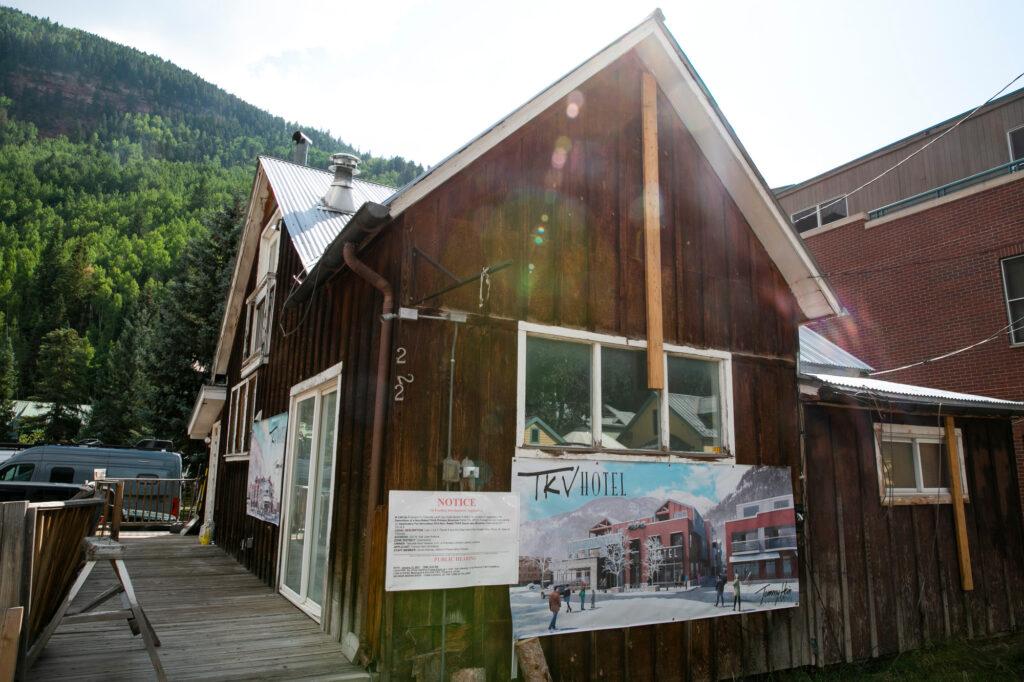
As the Telluride Film Festival gets ready to roll out its welcome mat, the talk of the town isn’t on the stars or surprise screenings. Instead, many residents say the town’s ongoing housing and labor debates are taking center stage and casting a considerable shadow on the town’s livability and affordability.
Some residents say the issues are at a boiling point. Others argue that housing has always been an issue in the historic mining town-turned-tourist haven.
Elena Levin has had to face the realities of these problems firsthand. She closed her popular Ghost Town coffee shop at the end of August. After five years in business, it wasn’t a lack of profits that shut her shop’s doors. She said it was a combination of housing and labor shortages plus a surge of crowds during the pandemic that forced her hand.
“I've been trying to not use the word 'decision' cause this isn't really a decision I made. I feel like I was just stuck in a situation, and I didn't have that many options,” Levin said.
Levin describes the Telluride business scene as an “ecosystem”: When one thing changes, there are ripple effects throughout the small community. There have been many changes since the town’s resurgence in the 1970s, when its main industry shifted from mining to tourism, but the pace of that change has accelerated during the pandemic.
Last spring, when white-collar workers no longer had to report to office jobs, many retreated to their second or third home or traveled to the mining town to work remotely.
The move took both short- and long-term rental properties — those typically vacant much of the year — off the market, driving up already exorbitant real estate and rental prices and creating extra population in the town that needed resources.
A labor shortage only makes the housing problem worse
The rising cost of housing dovetailed with the town’s labor shortage as gig workers laid off during the pandemic were displaced or found other jobs.
“We have crazy lines like we never had before,” Levin said. “We’ve just kind of like gone from being a community space to a machine that just has to pump out stuff endlessly. On top of it, we're doing it with less staff, and it's just like an equation that doesn't balance.”
Fellow business owner Pepper Raper Contillo has called Telluride home for a decade. She opened her vintage clothing shop The Pepporium during the pandemic, and said she’s seen the town change over time.
“That young group that comes in with ambition and is ready to ski and work and play and be a part of this community, they're not coming. There's nowhere for them to go,” Contillo said. “We always would call it kind of like the class of whatever year it was. It's almost like your freshman year class in a ski town.”
Contillo said the conversion of long-term rental units into short-term rental units have eaten into the town’s already beleaguered housing supply.
“I think the tough thing to realize before people would be like, ‘Alright, it's really expensive. We'll put three people in one bedroom, no big, you know, whatever we're ski bums, we're young, we can do it,’ but now those don't even exist.”

The downtime between tourism seasons is getting shorter
Tourist towns typically have booms and lulls in their seasons, like a rush of crowds due to holidays or festivals that eventually shrink back down to manageable levels so that the town’s permanent residents can rest and restock. That respite never came during the pandemic.
As Contillo explained, the break periods between seasons have grown shorter over the years, thanks in part to climate change.
“Summer has been starting earlier and ending later. You got part of May, June, July, August, September, and a solid part of October now,” Contillo said. “Like the fall is a great time to visit Telluride as well, but those extra months, you feel it.”
Now that Contillo’s sole summertime employee has returned to school, she’s back to working at her store seven days a week by herself.
“We saw this coming, for a long time, people didn't want to call out the short-term market because we are an economy based on tourism and nobody wants to hurt that, myself included,” Contillo said. “But at the end of the day, something has got to give.”
- How Did The Telluride Film Festival Get Big? Thank The Awards Season Frenzy And The Mines That Once Surrounded The Town
- At The Telluride Film Festival, Volunteers And Gig Workers Prepare For A Return To Normalcy — And Their Annual Traditions
- As The Telluride Film Festival Makes Its In-Person Return, Other Fests Consider Their Own COVID Safety Rules
A ballot initiative to cap short-term rentals gains some momentum, but not everyone supports it
The Telluride Daily Planet recently reported that the town has suspended issuing new short-term rental licenses, halting applications after a rush of submissions.
During the summer, a grassroots citizens’ ballot initiative gained support for its calls to permanently cap short-term rental licenses. One of the more contested parts of the proposal suggested distributing the capped licenses through a lottery system, a move critics say could destabilize businesses and longtime residents alike.
While not everyone is on board with the finer details of their proposal, many agree the conversation to address housing shortages is overdue.
Some residents like Doug Sanders said they’re stuck in the middle — they aren’t rich enough to afford exorbitant prices nor are they dealing with the instability others describe.
A resident of Telluride for 22 years, he owns his home and a commercial space he leases out. As a surveyor and ski instructor, Sanders said income from his jobs alone would not be enough to sustain himself. He fears the ballot initiative would take away his short-term rental license for his commercial property.
“I have a property that would probably appraise at $1.5 million that I can't afford to sell because where am I going to go?” Sanders said.
Like many longtime residents, he’s worked hard for his slice of paradise, holding onto his home through a handful of recessions.
“I'm just getting to the point now where I have a purchase, but the only way I can pay off my mortgage before my body gives out on teaching skiing is to short term rent my place,” he said.
Sanders cites other examples of families relying on Telluride’s robust short-term rental market to pay off their mortgage outside of town. Should they lose the ability to rent those spaces, they may also lose the places they do call home.
Like Levin and Contillo, Sanders said he worries the new year-round influx of people outside of festival and ski season has brought unintended consequences. It’s an issue that has spilled over into increased traffic complaints and a shortage of spots in schools for the children in town.
Contillo is also concerned the jump in housing costs could price out essential workers, who work at things like the job her husband held when they first arrived in Telluride: driving the snowplow to clear streets in winter.

Some residents want different approaches to solving the housing shortage
As a realtor, Anna Wilson laments the housing shortage for a different reason.
“It's hard for any buyer at any price point to come into the Telluride market and purchase something. We have really low inventory and a lot of people who want to get into it,” she said.
Like Sanders, Wilson is skeptical that the ballot initiative will lead to the change proponents are hoping will solve some of the town’s issues.
“There's been so many demographics buying here that I don't really see putting a limit on that making such a change,” said Wilson.
She also cited in-progress construction projects that are slated to bring affordable housing to the area, although proponents of the initiative said there’s no time to wait for future housing.
However, capping the number of short-term rentals isn’t what Wilson recommends. She sees a way forward through helping businesses directly.
“I'm wondering if maybe there's something that the town government can do to subsidize these local businesses, to be able to pay people, a signing bonus, something to get people to work and to work in the restaurant industry and in the service industry, even if it's not something that they necessarily want or need to do,” she said.
Sanders would like to see more discussion among the sides of the debate.
“If everybody gets together and beats their heads on it, we can work out something that everybody gives a little on,” he said. “Nobody's figured it out, but the more desirable your place is to live, the more acute the problem is going to be.”
- Gunnison Was An Affordable Alternative To Crested Butte. Then Came The Second Homes, Vacation Rentals And Remote Workers
- Limits Are Coming For Crested Butte’s Overused Camping Paradise. But Local Workers Who Live There Could Lose Out
- Crested Butte Purchases Hotel For Seasonal Workers As It Declares Housing An Emergency
- Town Of Frisco Considers Declaring Housing Shortage An Emergency







